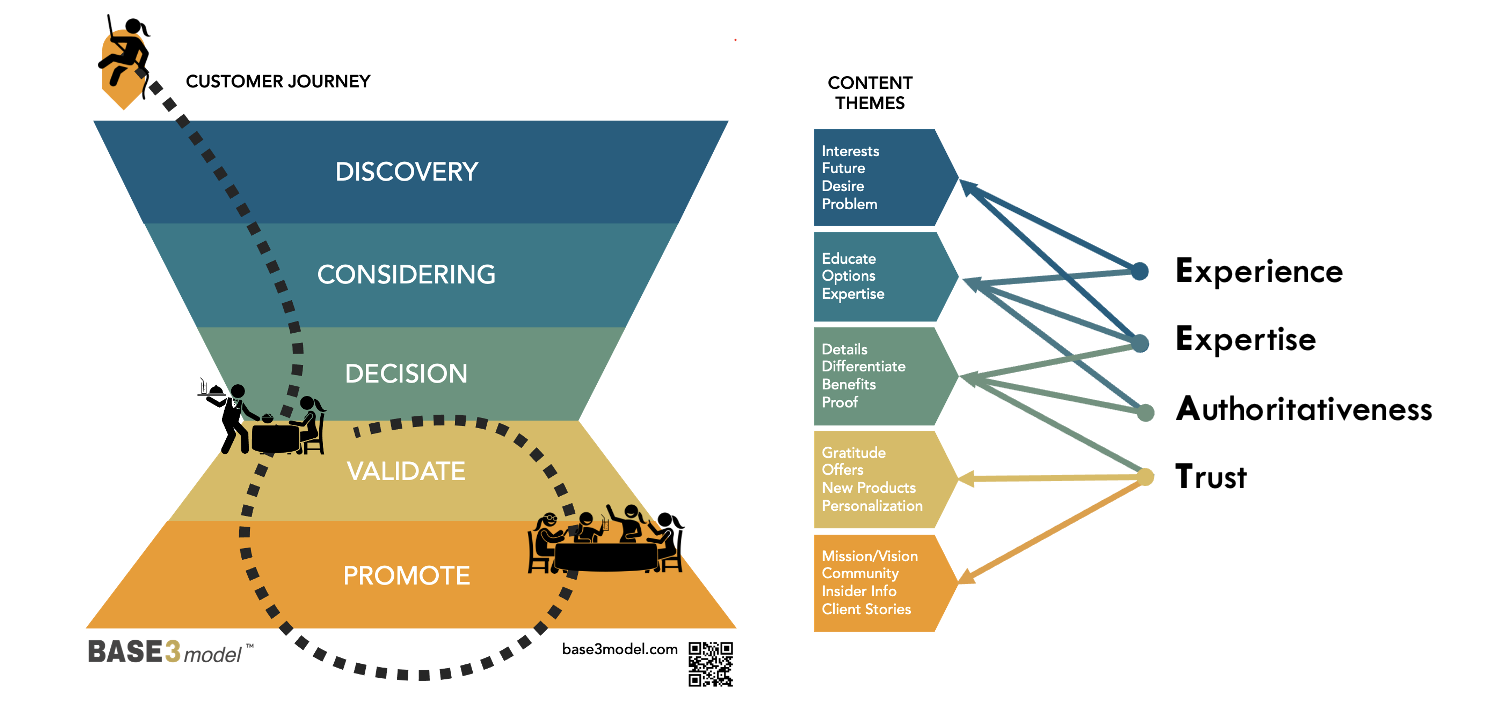Following guidelines provided by platforms where you are active is critical to your success on those platforms. Each provides documentation that provide hints and best practices for you to follow. For Google’s search engine, these best practices come in the form of a document called the “Search Evaluator Quality Guidelines”. These guidelines are provided to actual humans who do searches and then grade the search results against the guidelines. This provides Google with insight as to whether their algorithms are working as they should.
In the year 2022, Google updated those guidelines and expanded what was once EAT to EEAT principles. They added “Experience” to the Expertise, Authoritativeness, and Trust that they have instructed algorithms to look for.
Following is a quote from Google’s Search Rater Guidelines.
“Experience: Consider the extent to which the content creator has the necessary first-hand or life experience for the topic. Many types of pages are trustworthy and achieve their purpose well when created by people with a wealth of personal experience. For example, which would you trust: a product review from someone who has personally used the product or a “review” by someone who has not?
Expertise: Consider the extent to which the content creator has the necessary knowledge or skill for the topic. Different topics require different levels and types of expertise to be trustworthy. For example, which would you trust: home electrical rewiring advice from a skilled electrician or from an antique homes enthusiast who has no knowledge of electrical wiring?
Authoritativeness: Consider the extent to which the content creator or the website is known as a go-to source for the topic. While most topics do not have one official, Authoritative website or content creator, when they do, that website or content creator is often among the most reliable and trustworthy sources. For example, a local business profile page on social media may be the authoritative and trusted source for what is on sale now. The official government page for getting a passport is the unique, official, and authoritative source for passport renewal.
Experience , Expertise , and Authoritativeness may overlap for some page types and topics (for example, someone may develop Expertise in a topic due to first-hand Experience accumulated over time), and different combinations of E-E-A may be relevant to different topics. You should consider the purpose, type, and topic of the page, then ask yourself what would make the content creator a trustworthy source in that context.
Trust: Trust is the most important member of the E-E-A-T family because untrustworthy pages have low E-E-A-T no matter how Experienced, Expert, or Authoritative they may seem. For example, a financial scam is untrustworthy, even if the content creator is a highly experienced and expert scammer who is considered the go-to on running scams!”
Google Search Rater Guidelines
BASE3 Ensures You Are Following E-E-A-T Principles
The BASE3 model used the Search Rater Guidelines as foundational reference material in its architecture. By using BASE3 as a guide to plan your customer’s full journey, you will be certain that your content demonstrates E-E-A-T . Examine the diagram below showing sections of the BASE3 chart. You will see that the chart provides content topics for each level of the customer journey and that fulfill E-E-A-T. When you build out your customer’s full journey using BASE3 as a guide, you will ensure that you have followed the E-E-A-T principles.



